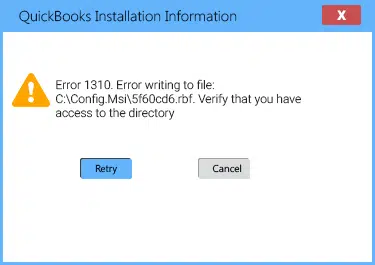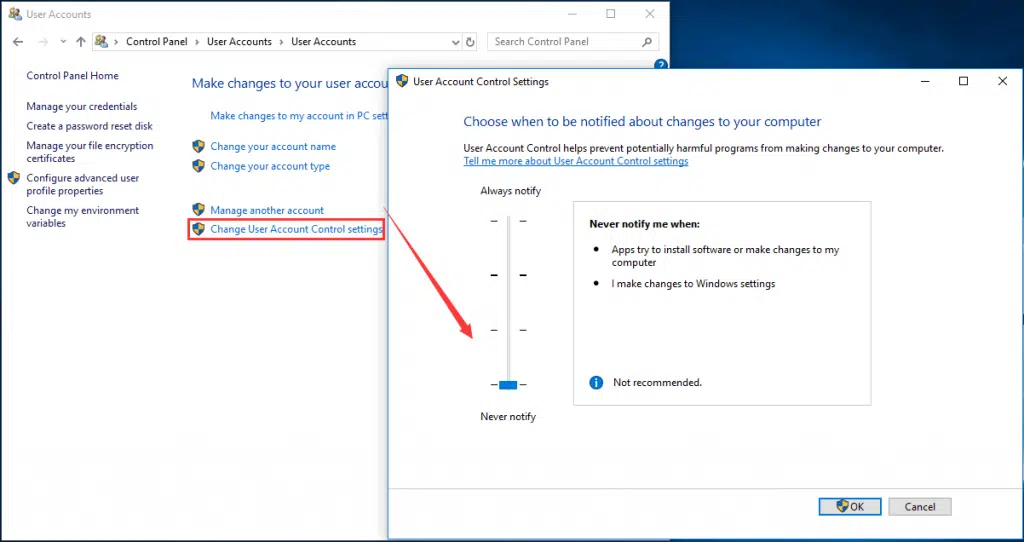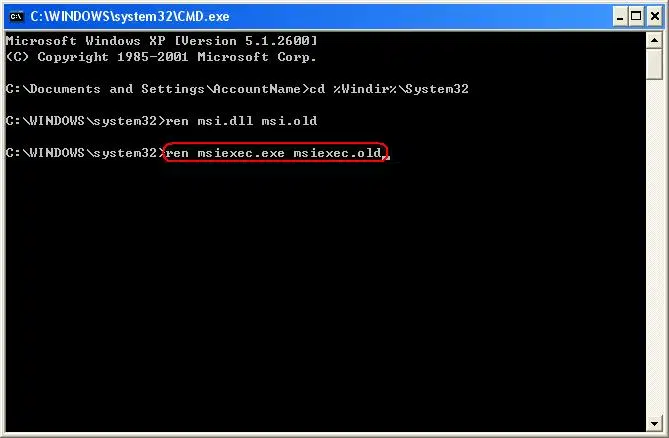How to Deal with QuickBooks Error 1310 Efficiently?
If you encounter an error while updating or installing QuickBooks Desktop, there's a chance that it's QuickBooks Error Code 1310. This error is a common issue that QuickBooks Desktop users face when updating or installing a newer version of the application. The error message "Error writing to file C:\Config.Msi\5f60cd6.rbf. Verify that you have access to the directory" or "Error writing to file C:\Program Files\Intuit\QuickBooks 2018\BusinessObjectProvider.dll" appears on the user's screen when the QB Desktop app triggers QuickBooks error 1310. In this article, you will learn about the causes and how to troubleshoot QuickBooks error 1310.
You might see the below given
image when the error encounters:
What Causes QuickBooks Install Error 1310?
There can
be several reasons for this error, including:
●
If the hard
drive doesn't have enough storage for the installation process, QuickBooks may
encounter such errors during installation or updating.
●
If the user
is trying to install or update QuickBooks
without admin rights on Windows.
●
Corrupt files
on local storage may interrupt QuickBooks installation, leading to such error.
●
If the hard
drive sectors are damaged or corrupt, QuickBooks installation may fail, and
error 1310 may occur.
●
Third-party
security applications may interfere with the QuickBooks Desktop installation process.
●
If the user
does not have proper folder access permission, QuickBooks may not be able to
access certain files and may display this error.
●
If Microsoft
Windows Installer is not registered, the installation process may fail, and
QuickBooks may show this type of error.
What are the DIY Methods to Fix QuickBooks Error 1310?
Here are
some possible fixes for QuickBooks Install Error 1310:
Method 1: Use the QuickBooks Install Diagnostic Tool
●
Download and
use the QuickBooks Install Diagnostic Tool.
●
First, make
sure to close all other programs running on your computer.
●
Find and
download the tool from the provided link, then double-click the file to open
it.
●
Wait for the
tool to scan and repair any issues with the installation. This process may take
around 15-20 minutes to complete.
●
Once the
repair process is done, restart your computer and try installing or upgrading
QuickBooks again.
●
If you still
encounter such error after using the tool, move on to the next troubleshooting
step.
Method 2: Change the User Account Control Settings
●
Press Windows
key + R keys on your keyboard.
●
In the Run
window's search box, type Control Panel and press OK.
●
Click on User
Account and select Change user account control settings.
●
Click Yes to
confirm.
●
Move the
slider to Never Notify to turn off the UAC.
●
Click OK and
restart the computer.
Method 3: Register Microsoft Windows Installer again
●
The user
needs to open the Start menu and type in "msiexec /unreg" in
the search box.
●
After that,
the user needs to press the Enter key and then click the Start button again.
●
Next, the
user should type in "msiexec /regserver" in the search box and
hit Enter.
●
Finally, the
user should try to install or update QuickBooks Desktop once again.
Method 4: Grant Full Admin Access to Windows Installer
●
Click the
Start button on your desktop and search for Command Prompt.
●
Right-click
on Command Prompt and select "Run as Administrator".
●
In the Command
Prompt window, type the command icacls "C:\Config.Msi" /T /C
/grant administrators:F (Note: replace the folder name /Config.Msi/ with the
folder name you received in the error message).
●
Press Enter
and close the Command Prompt.
●
Try to
install or upgrade QuickBooks again.
Conclusion
Installing applications can be
challenging and fixing installer errors may require advanced troubleshooting
skills. If you are not confident in troubleshooting QuickBooks error 1310
or the above given steps in this article are confusing, you can contact our QuickBooks error support team at 1-800-615-2347 for further assistance.






.jpg)
Comments
Post a Comment